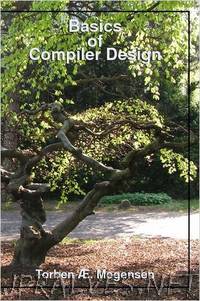
“Introduction to Compiler Design is a textbook is intended for an introductory course on compiler design, suitable for use in an undergraduate programme in computer science or related fields. The book presents techniques for making realistic, though non-optimising compilers for simple programming languages using methods that are close to those used in “real” compilers, albeit slightly simplified in places for presentation purposes. All phases required for translating a high-level language to machine language is covered, including lexing, parsing, intermediate-code generation, machine-code generation and register allocation. Interpretation is covered briefly. The book aims to be neutral with respect to implementation languages, so algorithms are presented in pseudo-code rather than in any specific programming language, and suggestions for implementation in several different language flavours are in many cases given. The techniques are illustrated with examples and exercises.”
